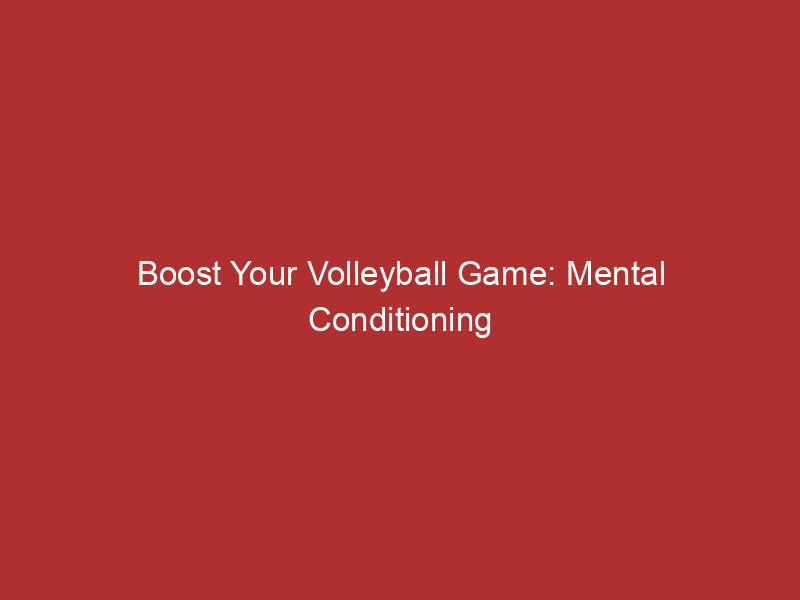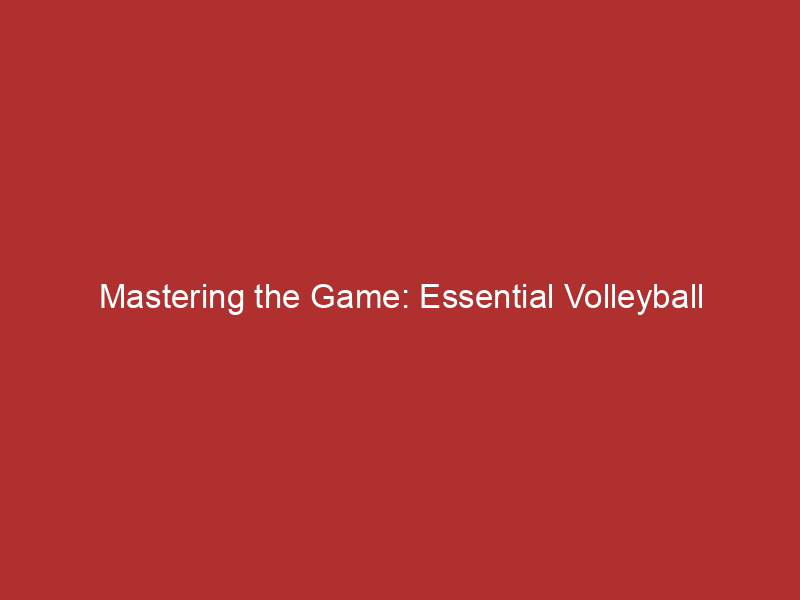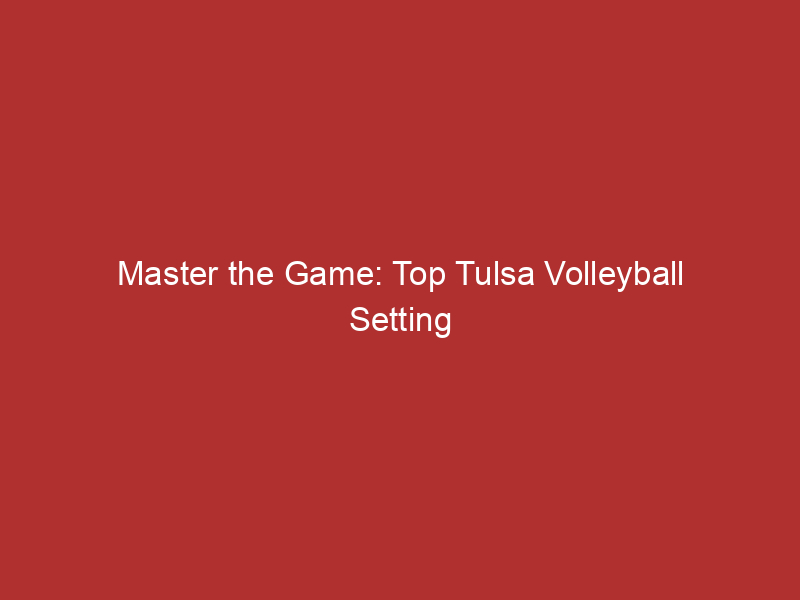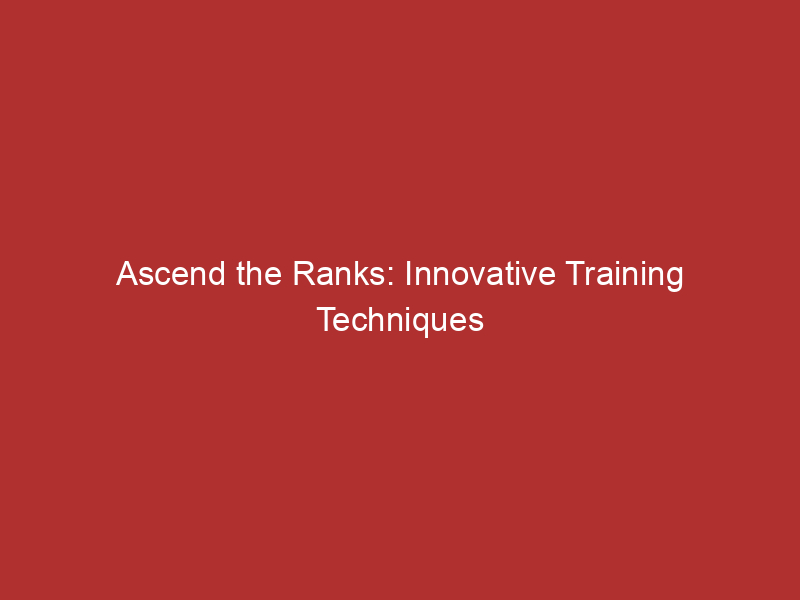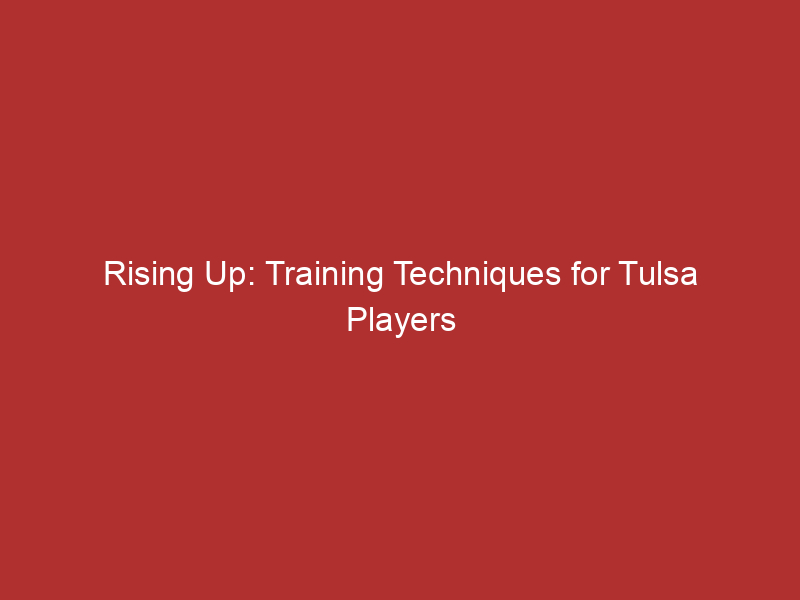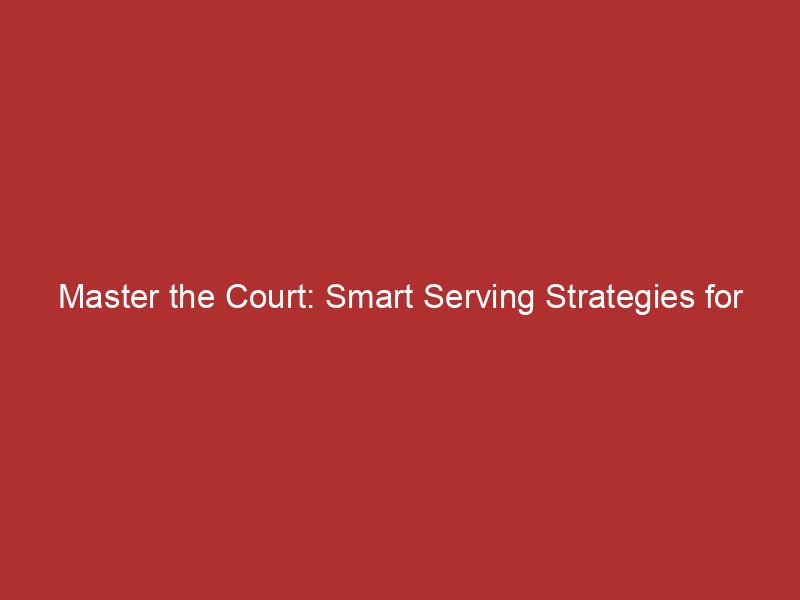
Introduction to Mental Conditioning for Volleyball
When we talk about volleyball, the first thing that comes to mind is physical strength and agility. However, mental strength plays an equally important role in this fast-paced game. In this blog post, we will delve into the significance of mental conditioning for volleyball and how it can lead to success on the court.
- Understanding the Importance of Mental Strength in Volleyball
Mental strength in volleyball is as crucial as physical strength. It’s the mental toughness that helps players stay focused, make quick decisions, and handle pressure during intense matches. A player with a strong mental game can overcome challenges, bounce back from mistakes, and perform consistently, regardless of the circumstances.
According to a study by the American Psychological Association, athletes with high mental strength are more likely to succeed than those who only focus on physical training. This finding highlights the importance of mental strength in sports like volleyball.
- Role of Mental Conditioning in Achieving Volleyball Success
Mental conditioning is a vital part of volleyball training. It involves developing mental skills like focus, confidence, resilience, and positive thinking. These skills help players to perform their best under pressure, maintain a winning mindset, and achieve their volleyball goals.
For instance, a player who has undergone mental conditioning will be better equipped to stay calm and focused during a crucial match. They will be able to make quick decisions, communicate effectively with their team, and stay motivated, even when the game gets tough.
In conclusion, mental conditioning is not just about improving performance on the court. It’s about building a strong mindset that can help players overcome challenges, stay motivated, and achieve their volleyball goals. So, if you’re serious about volleyball, don’t neglect the mental aspect of your training.
Building a Volleyball Success Mindset
Developing a successful mindset for volleyball is crucial for players who want to excel in the sport. It’s not just about physical skills; mental strength plays a significant role as well. Let’s delve into how to develop a winning attitude.
Developing a Winning Attitude
Winning in volleyball is not just about scoring points. It’s about the attitude you bring to the court. A winning attitude can be developed by:
- Embracing a Growth Mindset
- Overcoming Fear of Failure
- Staying Focused Under Pressure
Having a growth mindset means believing that your abilities can be developed through dedication and hard work. It’s the idea that you can improve, learn, and grow. In volleyball, this could mean working on your serve, improving your blocking skills, or learning to communicate better with your team. Remember, every great player started as a beginner.
Failure can be scary, but it’s also a part of learning. Every time you make a mistake in a game, you have the opportunity to learn from it and improve. Instead of fearing failure, embrace it as a chance to grow. Remember, even professional players make mistakes. What sets them apart is their ability to learn from those mistakes and come back stronger.
Volleyball games can be intense, and it’s easy to lose focus when the pressure is on. However, staying focused is crucial for success. Practice mindfulness and concentration exercises to help you stay calm and focused during high-pressure situations. Remember, the most important point is the one you’re playing right now.
Developing a winning attitude is a process, not an overnight transformation. It takes time, effort, and patience. But with the right mindset, you can overcome challenges, improve your skills, and become a better volleyball player.
Building Mental Resilience
As an essential part of building a successful volleyball mindset, mental resilience plays a crucial role. It’s about how you handle criticism and setbacks, and how you stay motivated during tough times. Let’s delve deeper into these aspects.
- Handling Criticism and Setbacks
- Staying Motivated During Tough Times
Every volleyball player, no matter how skilled, will face criticism and setbacks. It’s an inevitable part of the journey. The key is not to avoid them, but to handle them effectively. Remember, criticism is not a reflection of your worth, but an opportunity for improvement. When setbacks occur, see them as temporary hurdles, not permanent roadblocks. As the famous saying goes, “Failure is not the opposite of success. It’s part of success.”
Staying motivated during tough times can be challenging, but it’s crucial for mental resilience. When times are tough, remind yourself of your love for the game and your desire to improve. Set small, achievable goals and celebrate your progress. Remember, every great volleyball player has faced tough times and come out stronger. You can too!
Building mental resilience is a process, not a one-time event. It requires consistent effort and a positive mindset. But with practice, you can strengthen your mental resilience and become a more successful volleyball player.
| Key Takeaways |
|---|
| Criticism and setbacks are opportunities for growth, not reflections of your worth. |
| Staying motivated during tough times requires setting small, achievable goals and celebrating progress. |
| Building mental resilience is a process that requires consistent effort and a positive mindset. |
Strengthening Mind for Volleyball
One of the key aspects of becoming a successful volleyball player is having a strong mind. This doesn’t just mean being mentally tough, but also being able to focus and concentrate during the game. Let’s explore some strategies to improve your concentration.
Improving Concentration
Concentration is crucial in volleyball. It allows you to stay focused on the game, anticipate your opponent’s moves, and react quickly. Here are two effective techniques to enhance your concentration.
- Practicing Mindfulness
- Using Visualization Techniques
Mindfulness is all about being present in the moment. It’s about focusing on what’s happening right now, rather than worrying about the past or the future. This can be particularly helpful in volleyball, where the game can change in an instant. By practicing mindfulness, you can train your brain to stay focused on the game, no matter what distractions may come your way.
Visualization is a powerful tool for improving concentration. It involves picturing yourself performing well in the game, making the right moves, and scoring points. This not only helps to improve your focus but also boosts your confidence. By visualizing success, you can prepare your mind for the real game.
Remember, strengthening your mind for volleyball is a process. It takes time and practice. But with patience and persistence, you can improve your concentration and become a more effective player.
Boosting Confidence
Confidence is a key factor in the game of volleyball. It’s not just about physical strength, but also about mental toughness. Here are two effective ways to boost your confidence:
- Setting Achievable Goals
Setting achievable goals is a powerful way to boost your confidence. When you set a goal and achieve it, you prove to yourself that you are capable. This can be a major confidence booster. For example, if you’re a volleyball player, you might set a goal to improve your serve. You could aim to hit the ball over the net 9 out of 10 times. When you achieve this goal, you’ll feel a sense of accomplishment, which will boost your confidence.
Remember, the key is to set goals that are challenging, but still achievable. If you set a goal that’s too easy, you won’t feel a sense of accomplishment when you achieve it. On the other hand, if you set a goal that’s too difficult, you might feel discouraged if you don’t achieve it. So, find a balance and set goals that are just right for you.
- Recognizing and Celebrating Progress
Another effective way to boost your confidence is by recognizing and celebrating your progress. This means acknowledging your improvements, no matter how small they may seem. For instance, if you’ve been practicing your serve and you notice that you’re hitting the ball over the net more consistently, celebrate that progress. Give yourself a pat on the back. This will boost your confidence and motivate you to keep improving.
Remember, progress is progress, no matter how small. So, don’t overlook your small wins. Celebrate them. They are proof that you are improving, and that’s something to be proud of.
In conclusion, boosting your confidence is all about setting achievable goals and recognizing your progress. So, set your goals, work hard to achieve them, and don’t forget to celebrate your progress along the way. This will boost your confidence and help you perform better on the volleyball court.
Volleyball Mental Training Techniques
Mastering the physical skills in volleyball is crucial, but it’s only half the battle. The other half is won in the mind. Let’s delve into some mental training techniques that can help you excel in volleyball.
Mental Skills for Volleyball
There are several mental skills that can significantly enhance your volleyball performance. Here are three key ones:
- Developing a pre-game routine
- Using positive self-talk
- Practicing mental imagery
Just like physical warm-ups, mental preparation before a game is essential. A pre-game routine can help you focus, reduce anxiety, and set the stage for a successful game. This could include visualization exercises, deep breathing, or even a motivational pep talk to yourself.
What you tell yourself matters. Positive self-talk can boost your confidence and performance. Instead of thinking, “I can’t do this,” try telling yourself, “I’ve trained hard, and I can do this.” Remember, your mind believes what you tell it.
Visualizing success can lead to actual success. Mental imagery involves picturing in your mind what you want to happen in the game. This can be a powerful tool for improving skills and building confidence. For instance, you can visualize serving the ball perfectly or making a successful block.
These mental skills are just as important as physical skills in volleyball. By developing a pre-game routine, using positive self-talk, and practicing mental imagery, you can significantly enhance your performance on the court.
Volleyball Mental Conditioning Techniques
When it comes to volleyball, physical strength is crucial. But did you know that mental strength is just as important? Let’s explore some techniques that can help condition your mind for the game.
-
Relaxation Techniques for Stress Management
Stress can be a big obstacle when playing volleyball. It can make you lose focus and perform poorly. But don’t worry, there are ways to manage it.
One effective technique is deep breathing. When you’re feeling stressed, take a moment to close your eyes and take deep, slow breaths. This can help calm your mind and body. You can also try progressive muscle relaxation. This involves tensing and then relaxing each muscle group in your body, starting from your toes and working your way up to your head.
Remember, it’s normal to feel stressed during a game. What’s important is how you handle it. With practice, these relaxation techniques can help you manage your stress and perform at your best.
-
Techniques for Improving Focus and Concentration
Focus and concentration are key to success in volleyball. When your mind is fully engaged in the game, you can react quickly and make smart decisions.
One way to improve your focus is through mindfulness. This involves paying attention to the present moment without judgment. You can practice mindfulness during your daily activities, like eating or walking. Over time, this can help improve your focus during the game.
Another technique is visualization. Imagine yourself successfully performing different moves in the game. This can help you stay focused and confident during the actual game.
Remember, improving your focus and concentration takes time and practice. But with patience and persistence, you can enhance your mental game and become a better volleyball player.
So there you have it. These are just some of the mental conditioning techniques you can use to improve your volleyball game. Remember, mental strength is just as important as physical strength in volleyball. So don’t neglect your mental training. With the right mindset and techniques, you can become a stronger and more successful volleyball player.
Mental Preparation for Volleyball
Just as physical training is crucial for volleyball, mental preparation is equally important. It helps players to stay focused, manage their emotions, and perform their best under pressure. Let’s delve into some key strategies for pre-game mental preparation.
Pre-Game Mental Preparation
Before the game begins, it’s essential to prepare your mind for the challenges ahead. This involves creating a game plan and visualizing success. Let’s explore these steps in detail.
- Creating a Game Plan
- Visualizing Success
Having a game plan is like having a roadmap for success. It outlines the strategies and tactics you’ll use to outsmart your opponents. It includes understanding your team’s strengths and weaknesses, studying your opponents, and deciding on the best approach to the game. For instance, if your team has a strong server, your game plan might involve getting them to serve as often as possible.
Visualization is a powerful tool used by many top athletes. It involves picturing yourself succeeding in the game, making the perfect serve, or blocking a difficult shot. By visualizing success, you can boost your confidence and reduce anxiety. A study showed that athletes who used visualization techniques were more successful in their games than those who didn’t. So, take a few minutes before the game to close your eyes and visualize your success on the court.
In conclusion, mental preparation is a key component of volleyball success. By creating a game plan and visualizing success, you can enter the game with a clear mind and a confident attitude. Remember, the mind is a powerful tool, and with the right preparation, you can use it to your advantage on the volleyball court.
In-Game Mental Strategies
Mastering the mental aspect of volleyball is just as important as physical training. In this section, we will discuss two key in-game mental strategies: staying focused during the game and managing emotions on the court.
- Staying focused during the game
- Managing emotions on the court
Keeping your focus during a volleyball match is crucial. It’s easy to get distracted by the crowd, the score, or even your own thoughts. But remember, the game is won one point at a time. Concentrate on the ball and your role in the team. Every serve, every pass, every hit matters. One effective strategy to maintain focus is to use short, positive affirmations. For example, you might say to yourself, “I can make this serve,” or “I am ready for the ball.”
Emotions can run high during a volleyball game. Excitement, frustration, and pressure can all impact your performance. It’s important to learn how to manage these emotions. One way is to practice mindfulness. This involves staying present in the moment and not letting your emotions control your actions. If you make a mistake, don’t dwell on it. Instead, take a deep breath, let it go, and focus on the next play. Remember, volleyball is a team sport. Encourage your teammates and stay positive, even when things get tough.
In conclusion, mental strategies are a key component of volleyball. By staying focused and managing your emotions, you can improve your performance and help your team succeed.
Conclusion: The Power of Volleyball Psychology
In this article, we have explored the profound impact of mental conditioning on the performance of volleyball players. We have discovered that the mind plays a significant role in the success of an athlete, just as much as physical strength and skill do.
- Understanding the impact of mental conditioning on performance
Mental conditioning is a powerful tool that can enhance an athlete’s performance. It involves training the mind to overcome challenges, maintain focus, and stay motivated. Studies have shown that athletes who engage in mental conditioning perform better under pressure, have higher self-confidence, and are more resilient in the face of adversity.
For instance, consider the case of a volleyball team that was struggling with their performance. After implementing a mental conditioning program, the team saw a significant improvement in their game. They were able to maintain focus during critical moments, stay motivated despite setbacks, and work together more effectively as a team. This example illustrates the power of volleyball psychology and the impact it can have on performance.
- Continuing to build mental strength for ongoing success
Building mental strength is not a one-time event but a continuous process. It requires consistent practice and dedication. Athletes should continue to engage in mental conditioning exercises, such as visualization, positive self-talk, and mindfulness, to maintain their mental strength.
Continuing to build mental strength can lead to ongoing success in volleyball. It can help athletes stay motivated, overcome challenges, and perform at their best, even under pressure. In the long run, this can lead to a successful career in volleyball.
In conclusion, the power of volleyball psychology cannot be underestimated. It plays a critical role in the performance of athletes and can lead to ongoing success in the sport. By understanding the impact of mental conditioning and continuing to build mental strength, athletes can enhance their performance and achieve their goals.

